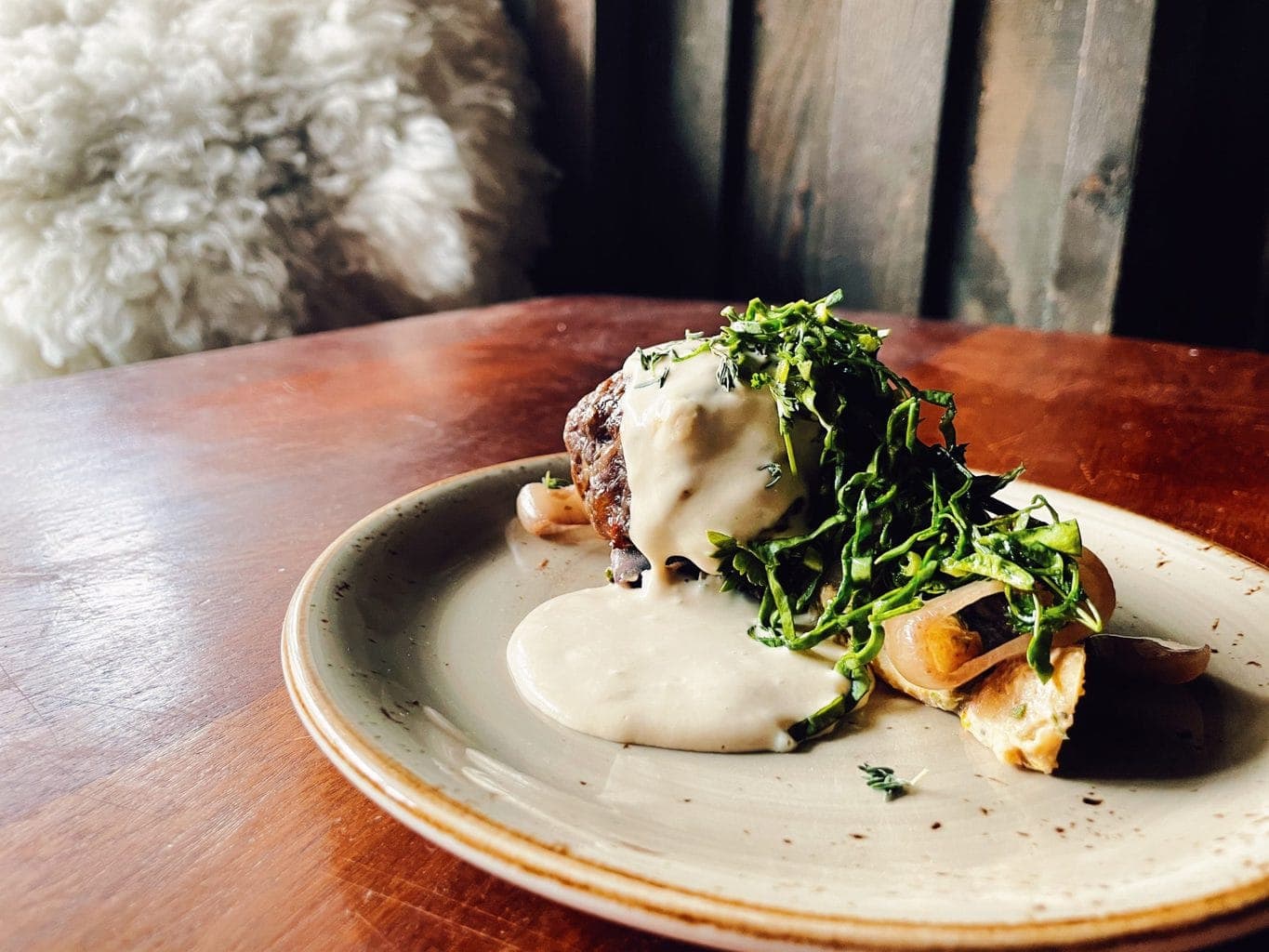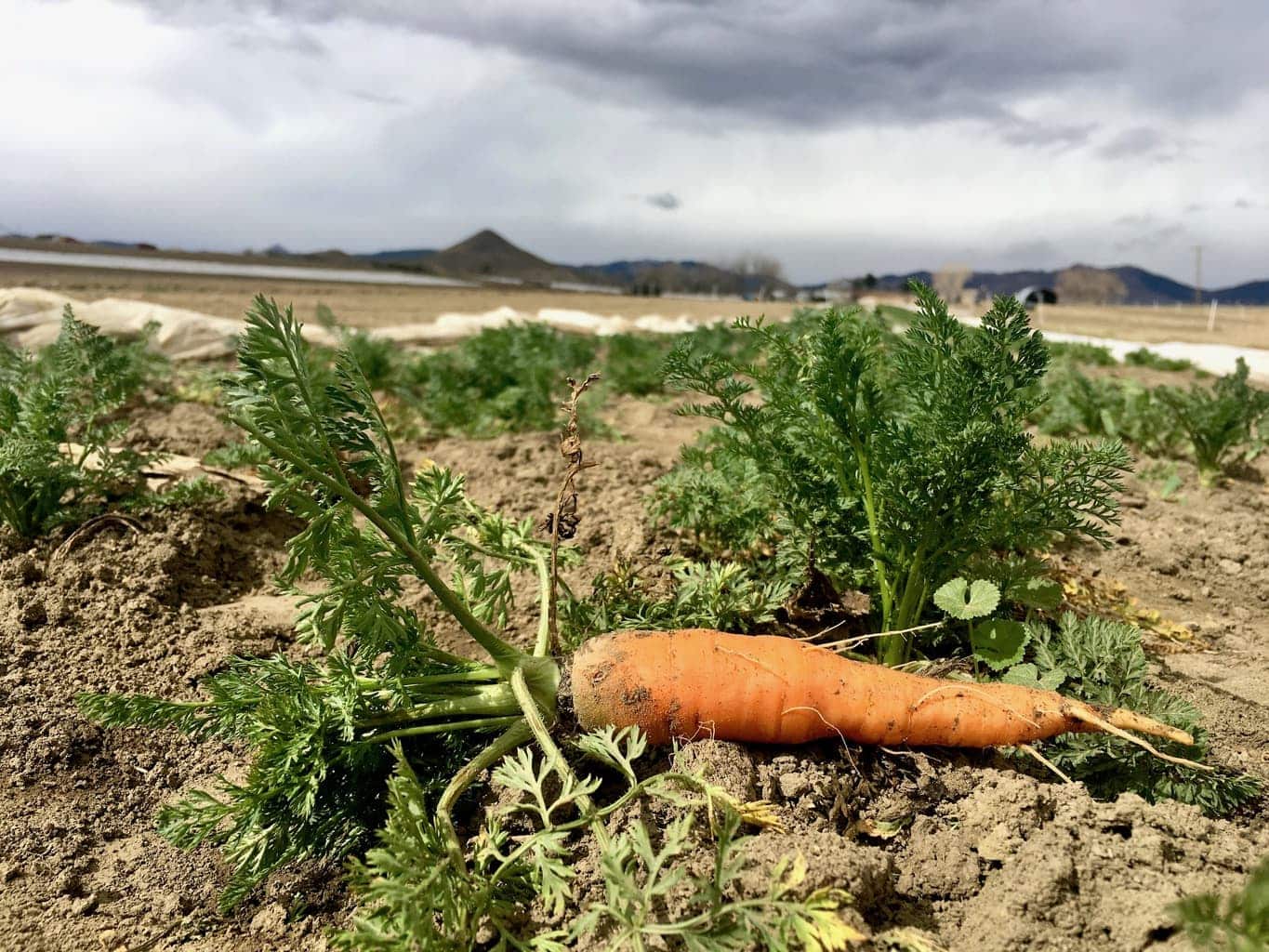
Stocking our restaurants with year-round farm food demands strategies — we do live in Colorado, after all. If something is capable of undergoing preservation in such a way that flavor is maintained (if not transformed in an excellent way), then we preserve. So beginning somewhere towards the end of July, for example, when we first start getting tomatoes, we serve them fresh and continue for the duration of the season. But as the first frost draws near, we begin making tomato sauce in enormous quantities. The sauce (which represents a most excellent transformation) carries us through the long parade of months, through winter, spring and early summer, until we have fresh tomatoes again. Which means we grow far more tomatoes than we would need if we only served them fresh. We grow thousands of pounds of tomatoes.
Most root vegetables, like potatoes and beets, are sent to our root cellar before the first frost, where they remain vibrant and full of flavor until it’s time again to harvest roots from the ground. But last year, we kept a few large beds of carrots in the ground for the winter. Would they survive under soil until spring?
They did! And they are carrots transformed. The subterranean months turned them sweet.
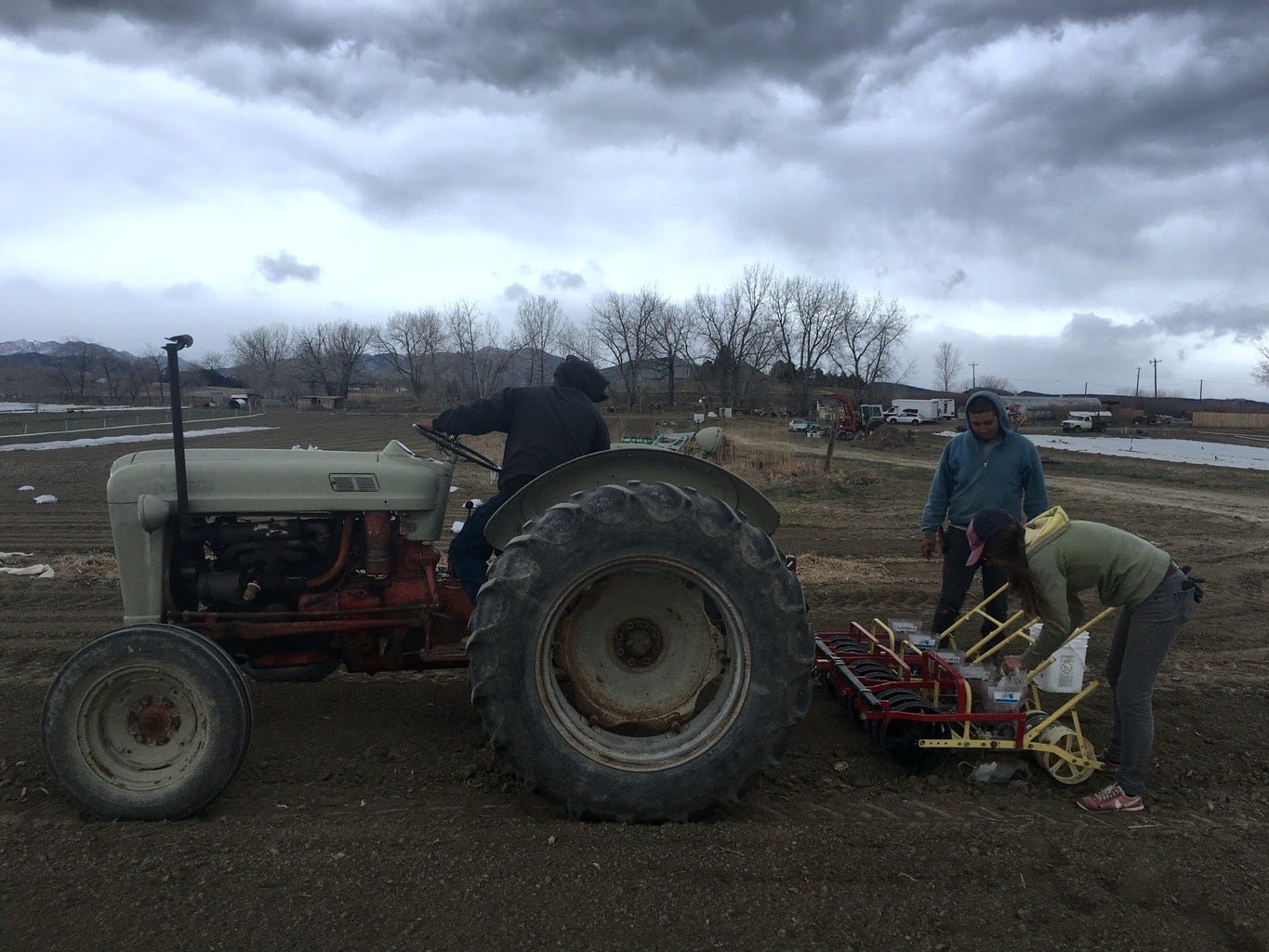
We also plant for much of the year, with the exception of the coldest, darkest months, when the ground is frozen. As soon as we can work that land again in the early spring, though, we are back at it. Now, we are planting a diversity of greens, such as arugula. Greens grow fast; soon, the seeds speckling the soil will turn into billowy leaves and stems. This is a glorious transformation.
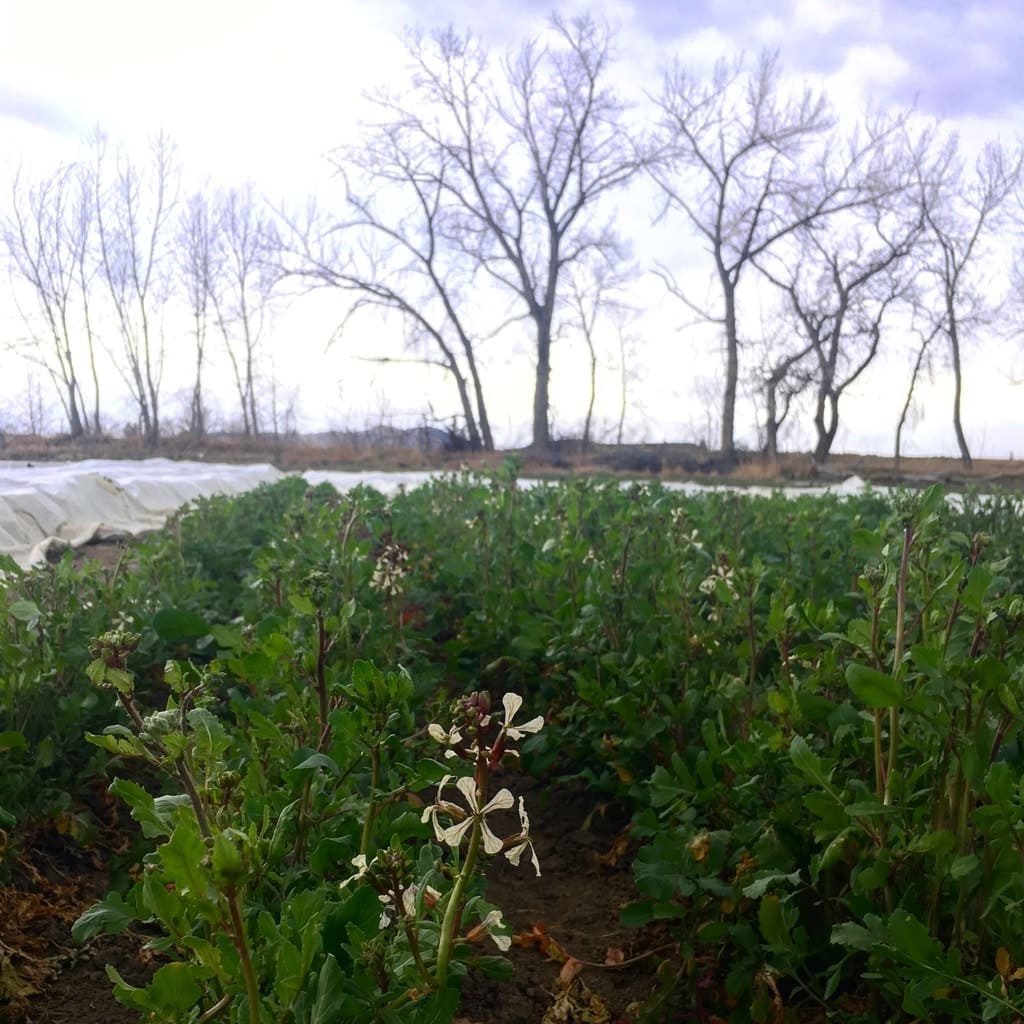
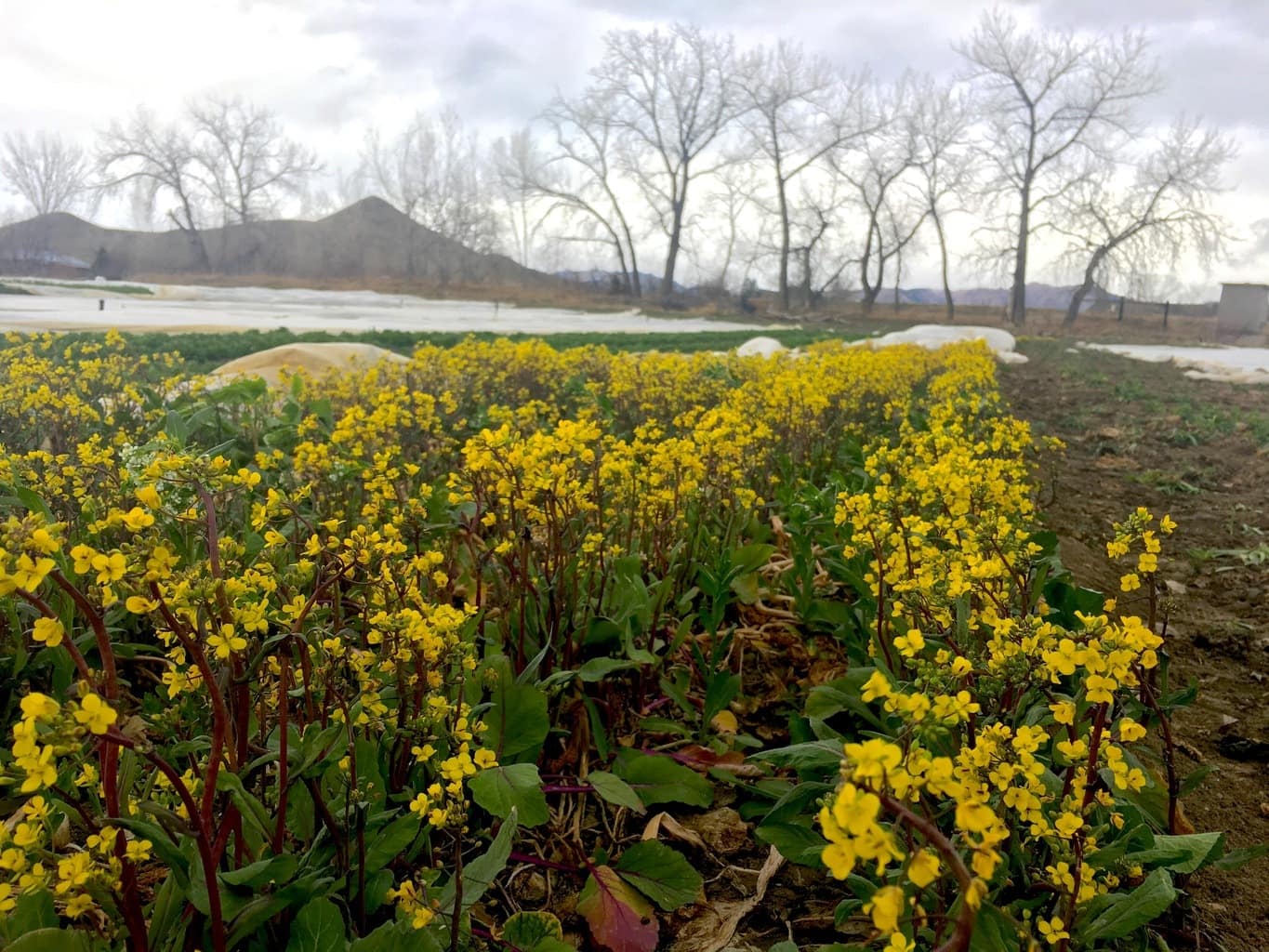
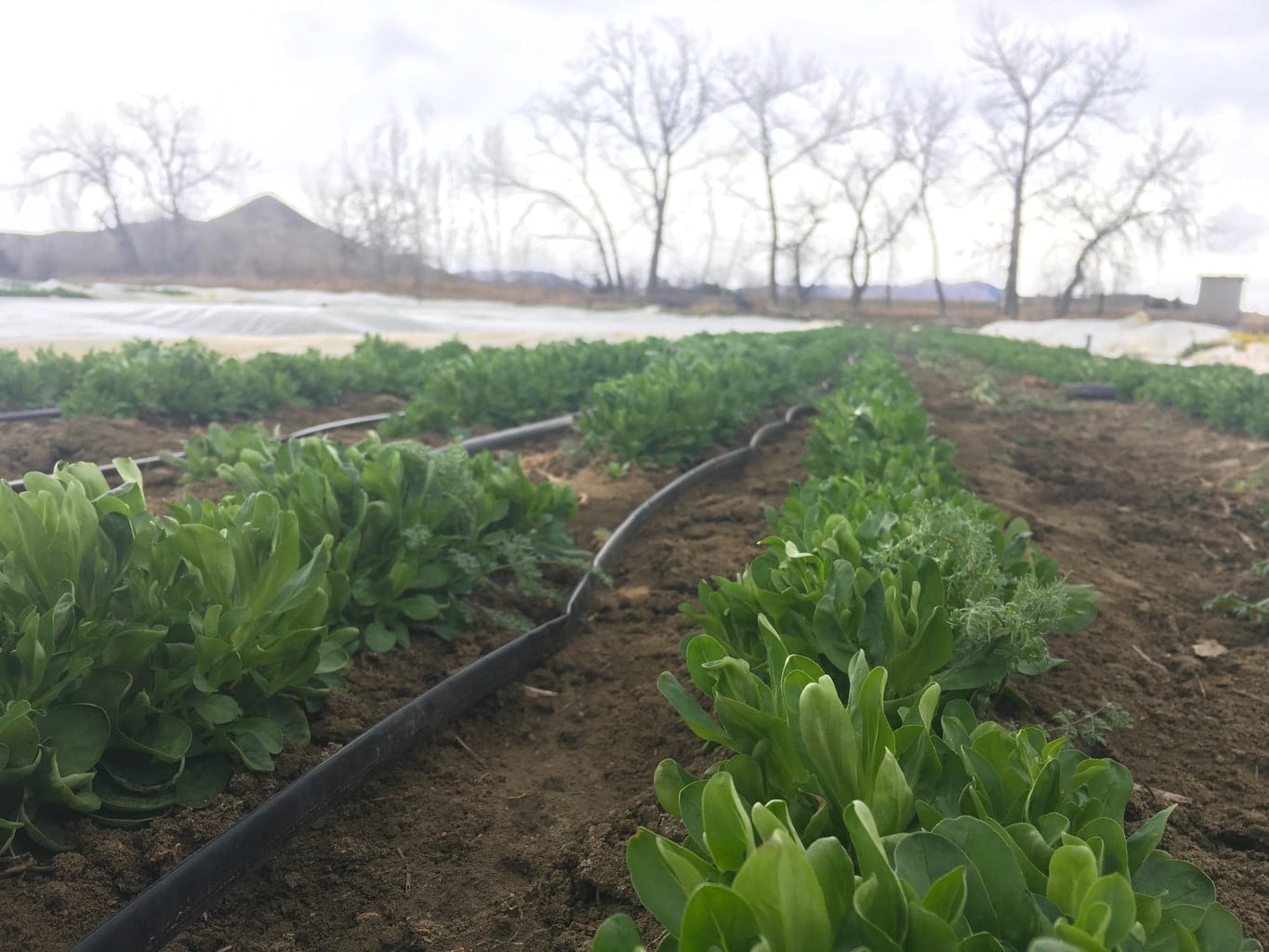
We also plant greens in the fall, drape row cover over them, and nurture them through the winter. They don’t grow fast during the winter, but certain kinds of greens, like arugula, persist through January and February, and we harvest them all year for the restaurants.
Now, those over-wintered greens are bushy, green and even flowering. By the time we are done harvesting them, the ones we have been planting from seed will be ready for harvest.
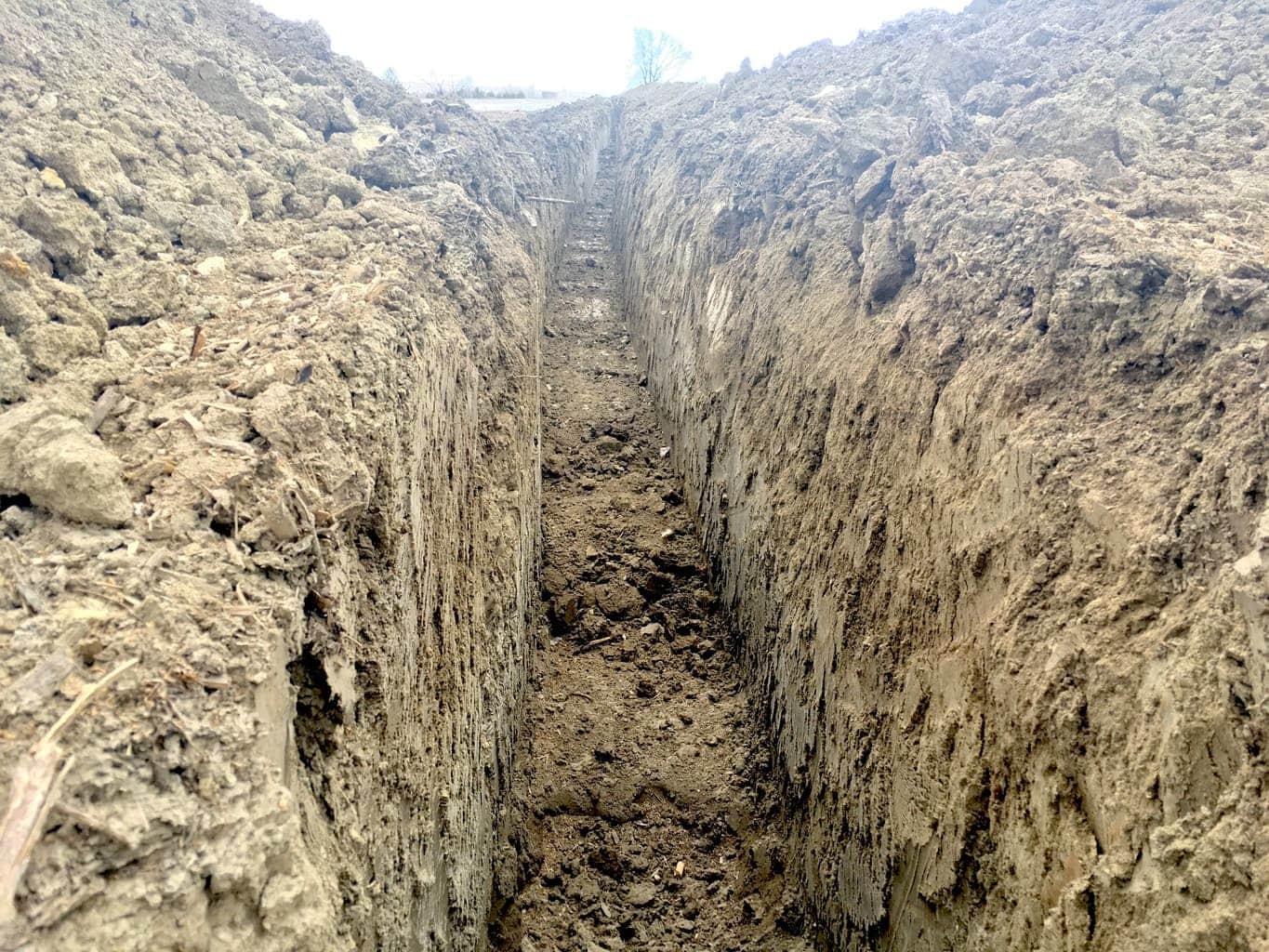
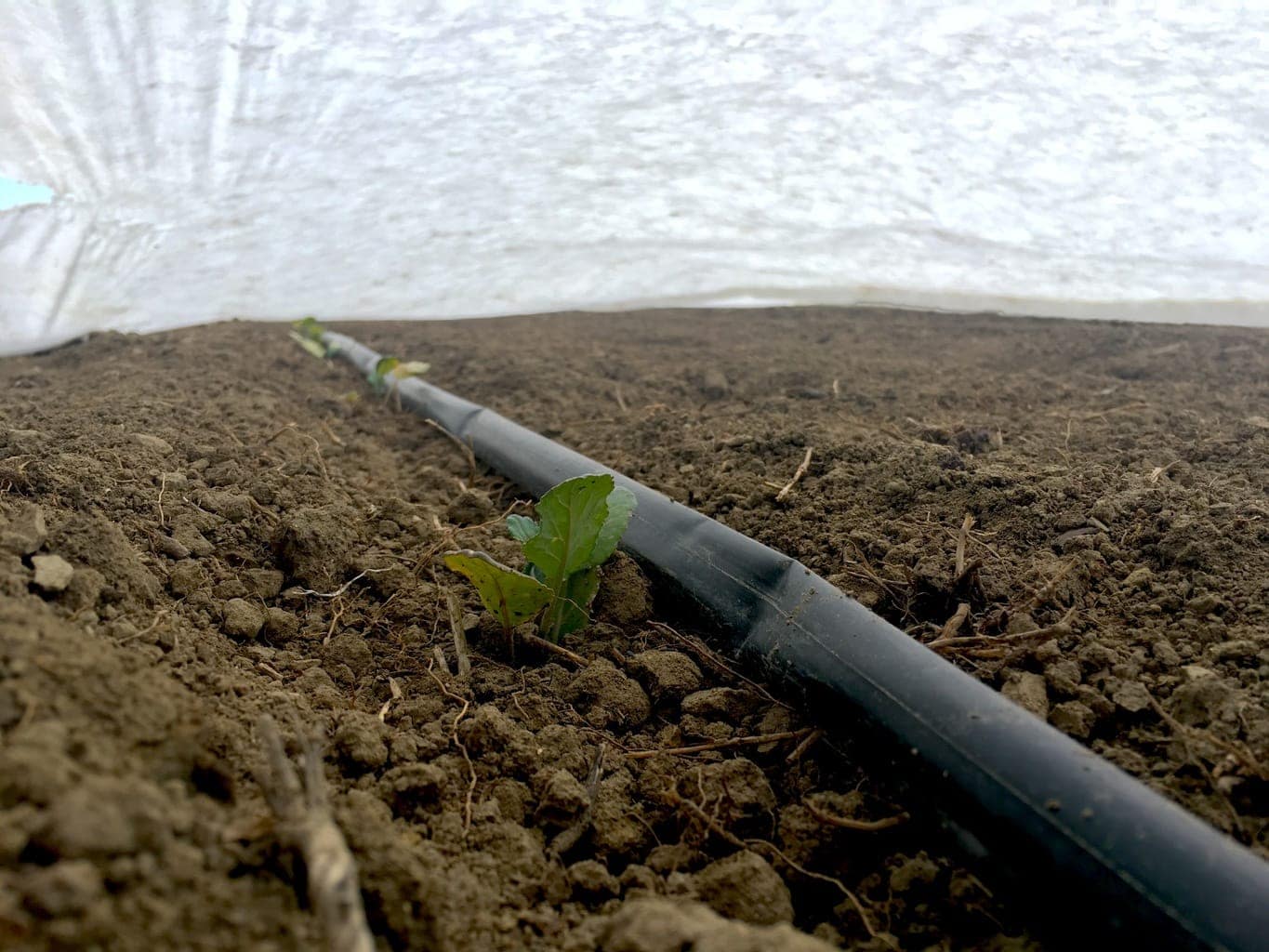
During this early part of the season — a variation on a theme of spring training — we also have turned to irrigation projects in recent years. When we started farming nearly a decade ago, water tended to get directed to plants through hoses (not the kind in your backyard; much larger and heavier) that we had to lug around our acres upon acres of vegetable cultivation. But we have busied ourselves recently with digging deep trenches and burying permanent irrigation piping. This lets us tap the water from, essentially, above-ground spigots.
Life on the farm and in the restaurants is always busy, but now we are marching back into the dizzying, exhausting, uplifting, sometimes deflating, often satisfying storm. Planting from seed, prepping new beds, nurturing seedlings for transplant, moving hogs around, harvesting early greens — including our acre of asparagus — irrigating.
And then there is the Boulder County Farmers’ Market in downtown Boulder, beginning a week from Saturday. We will have mountains of greens, root vegetables, meat, grains and more. And this year, we will be serving pork burgers and salads in the prepared-foods portion of the Market. We will have more about that next week, in the blog.
